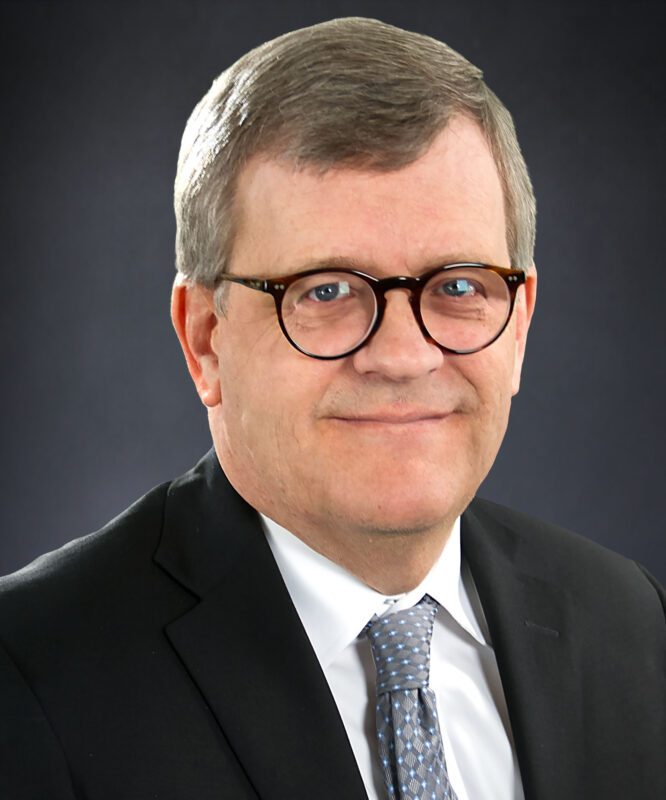
The finalists for WashingtonExec’s Pinnacle Awards were announced Oct. 13, and we’ll be highlighting some of them until the event takes place virtually Dec. 8.
Next is Contracts Industry Executive of the Year finalist Howard Porter, who’s corporate director and senior vice president of contracts at CACI. Here, he talks success in his current role, primary focus areas going forward, proud career moments and more.
What has made you successful in your current role?
Always keeping in mind that we need to provide value every day as leaders of a functional support organization such as contracts, where we have an important role both as internal business advisers and representing our company with our government customers.
I believe that delivering value is a product of listening to our leadership and internal and external customers on their important priorities and current and future needs and taking action to support those objectives.
Also, commitment and follow-through is very important as it establishes trust in you as a leader and in the people in your organization. I am fortunate because the people in my organization share these values and they have great commitment to our company and our customer missions.
What was a turning point or inflection point in your career?
I practiced law for almost 10 years — not in the government contracts field — so coming to CACI and moving into a contracts role was a significant career change for me. I started in a relatively junior, nonsupervisory role as I did not have a government contracts background, but it was a career move that I really wanted to make. The soft skills that I learned practicing law — listening, writing and acting as an adviser — were important in easing that transition.
Also, my first manager at CACI is a phenomenal person and leader and a real subject matter expert in contracts. I learned so much from her, and I have been very fortunate to continue to work for incredible leaders at CACI to this very day.
What are you most proud of having been a part of in your current organization?
The instances where we have really pulled together as a contracts department and company to respond to an extraordinary challenge. The recent example is the COVID epidemic, where we had to pivot quickly and work with our customers to implement measures to protect our workforce and maintain people in a ready state to support the mission, while at the same time maintaining our focus on the important day-to-day actions that are essential for normal business operations.
I’m also very proud of our contracts team’s contribution to our successful M&A program at CACI. This is another example of our people taking on additional work involved with due diligence with a very focused and thorough approach.
What are your primary focus areas going forward, and why are those so important to the future of the nation?
Regarding our contracts organization, I’m currently focused on how we can integrate technology more into our processes, such as contract record set-up when we receive contract awards, so that we can reduce more manual repetitive tasks and free up our work force and ultimately be better positioned to scale.
More broadly, we need to consider who will comprise the future contracting workforce. Not many people in college, for example, really know about the government contracting field, so a question is how do we find talented people and attract them to this field which can offer a rewarding career path, including helping to shape business decisions that support our customers important missions.
In this regard, we are expanding an internship program within our contracts organization with a view toward identifying people with interest and aptitude for contracts as a career.
How do you help shape the next generation of government leaders/industry leaders?
Learning the importance of relationships at an early stage of a person’s career is very important for future leaders. In the contracts world, connections begin when a company’s contracts manager is working with their government contracting officer or prime contractor counterpart on a regular basis, and building mutual respect and trust. That way, if challenging issues arise, you have an established business relationship that supports collaboration and mutual resolution of those issues.
That model of continued engagement really carries forward as people move into leadership roles in their career. Unfortunately, if we lose people in the formative years of their careers, that collective pool of shared experience and knowledge is reduced. So, retention of our contracts workforce, both for industry and government, is key.
People are looking for increased flexibility where possible — teleworking for example — which we are working to provide, while still maintaining the internal and external customer connectivity, which is so important in our role.
What’s one key thing you learned from a failure you had?
Resilience is important. People who are conscientious like I am can take failure hard. Acknowledging failure and learning from it is very important, but it’s also important not to wallow in it or let it deter you from being confident and trusting your judgment going forward.
Looking back at your career, what are you most proud of?
I’m most proud of our team. The people that I have worked with at CACI have meant so much to me over the years. It’s a real team and we support each other, and everyone steps up to get the job done the right way.
The Dr. J.P. London Good Character Award that I received a few years ago means a great deal to me as it reflects Dr. London’s values of honesty, integrity, commitment and loyalty that I believe the people on our team demonstrate each day.

